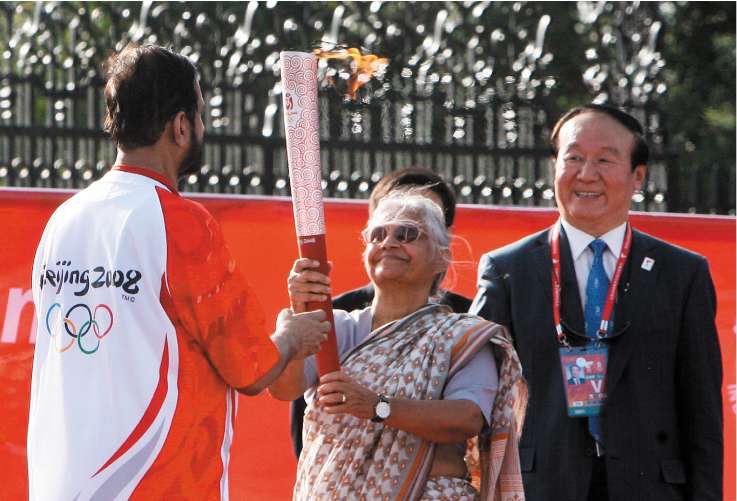India pulls off a peaceful Olympic torch relay, by banning the public

Your support helps us to tell the story
From reproductive rights to climate change to Big Tech, The Independent is on the ground when the story is developing. Whether it's investigating the financials of Elon Musk's pro-Trump PAC or producing our latest documentary, 'The A Word', which shines a light on the American women fighting for reproductive rights, we know how important it is to parse out the facts from the messaging.
At such a critical moment in US history, we need reporters on the ground. Your donation allows us to keep sending journalists to speak to both sides of the story.
The Independent is trusted by Americans across the entire political spectrum. And unlike many other quality news outlets, we choose not to lock Americans out of our reporting and analysis with paywalls. We believe quality journalism should be available to everyone, paid for by those who can afford it.
Your support makes all the difference.The backdrop was stunning, the celebrities (apart from the cricketer Sachin Tendulkar who pulled out at the last minute citing a groin injury) waved and smiled, and the politicians were on hand to make warm speeches. All that was lacking as the Olympic torch was run through Delhi yesterday were some people to see it.
Such were the concerns of the Indian authorities about demonstrators disrupting the event that the two-mile relay through the centre of Delhi effectively took place in private. The only people who managed to get a glimpse of the torch were the 15,000 police, the politicians and a couple of hundred specially selected schoolchildren. A public spectacle it most certainly was not. "There is no entry for the public," said one senior police officer on duty. "No members of the public are getting in."
While the police in India were keeping Tibetans away, in China they were locking them up. Reports said that police raided a monastery in the north-west of the country and detained scores of Buddhist monks. A source said that 80 per cent of the Tongren monastery's 200 inhabitants were taken away. Earlier this year the monks had led anti-Chinese protests. A reported 500 protesters were detained by Nepalese police in Kathmandu.
The event in Delhi was nothing short of surreal. While the Delhi police will congratulate themselves on a job well done, the real winners were surely the Tibetan protesters who, with just the threat of causing disruption, managed to clear the centre of this noisy, chaotic city and cause gridlock everywhere else. In Delhi, a handful of protesters were arrested while in Mumbai 25 were detained.
"This is the irony. The Olympic torch is supposed to represent the freedom of the spirit ... In India we have had a larger security operation than there is for Republic Day," said Tenzing Choezang, a Tibetan lawyer. He was taking part in a peaceful demonstration in Delhi away from the relay site. Other protesters participated in a lively "alternative" relay that drew large numbers of spectators.
Asked if the security operation that banned the public from participating in the run through Delhi was in the spirit of the Olympics, the sports minister, MS Gill, one of the politicians participating in the stifled celebrations, said: "I will not make any comment. I have listened to your observation but I am not saying anything."
India, which treads carefully with its relationship with China, was anxious to avoid the demonstrations which disrupted the relays in London and Paris. India is home to around 100,000 Tibetan exiles and their spiritual leader, the Dalai Lama. Some protesters had said they would do their utmost to disrupt the run.
At the same time, prior to the event, officials with the Indian Olympic Association had said members of the public would be allowed to see the torch as it was run along the ceremonial Rajpath to the India Gate war memorial. As it transpired, other than the schoolchildren, the only people invited were a small contingent of India's Chinese community.
Join our commenting forum
Join thought-provoking conversations, follow other Independent readers and see their replies
Comments